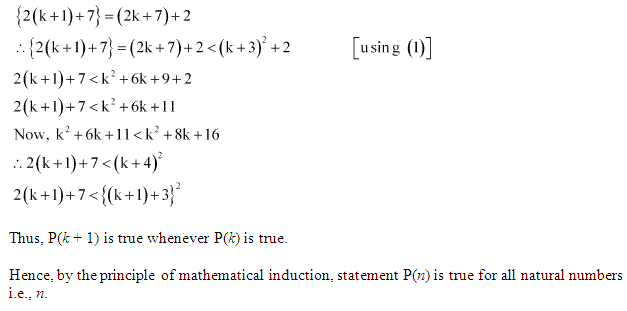Principle of Mathematical Induction (Ex – 4.1)
Question 1:
Ans :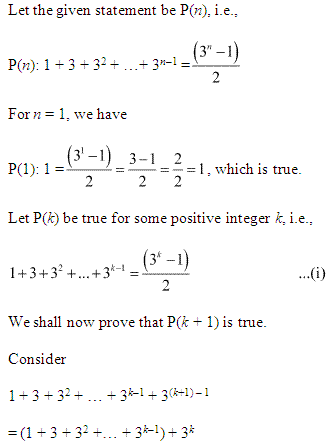
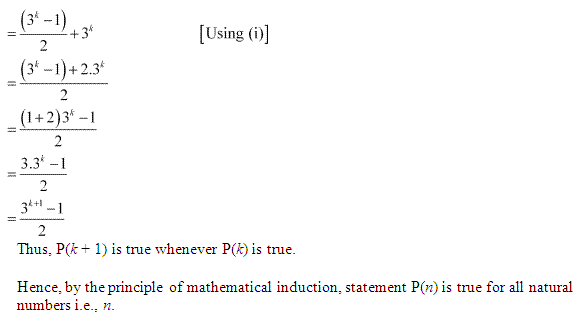
Question 2:
Ans :

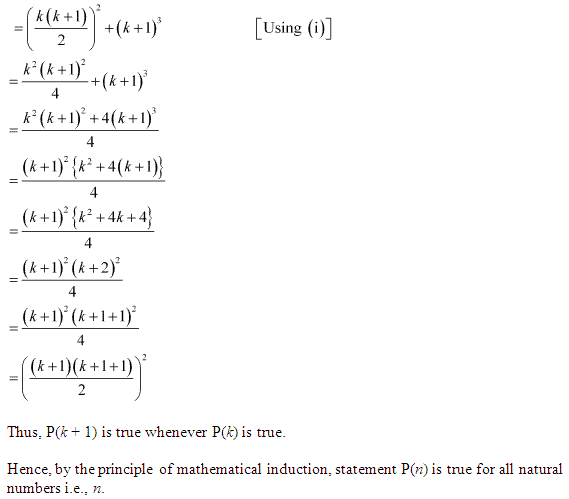
Question 3:
Ans :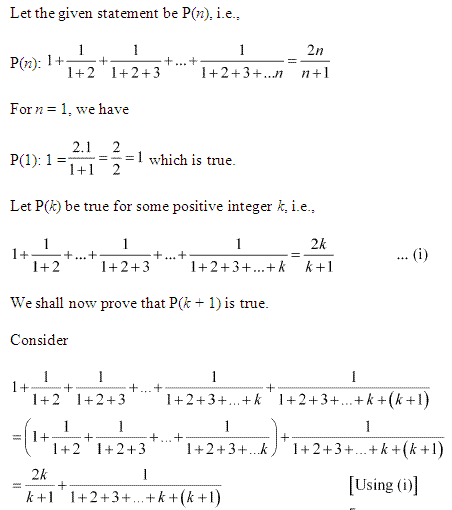
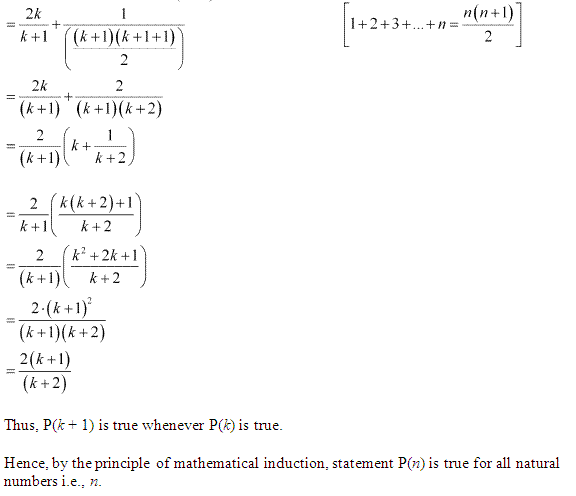
Question 4:
Ans :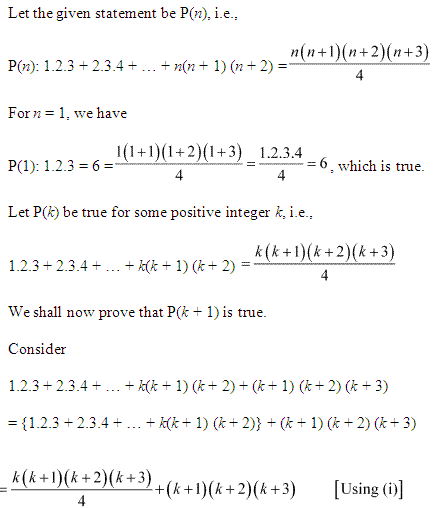
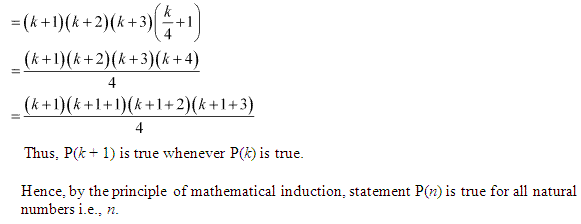
Question 5: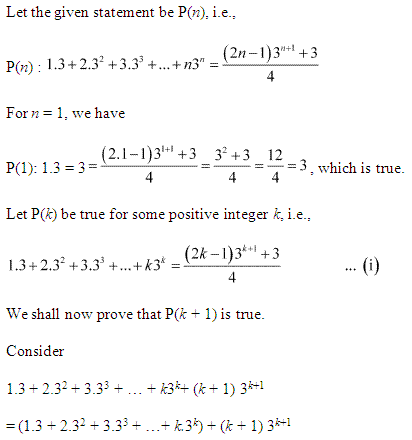
Ans :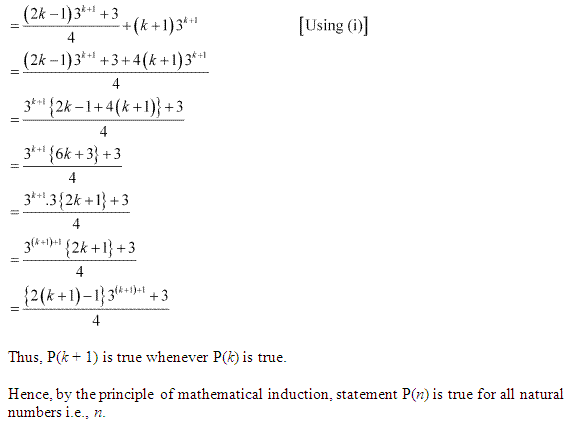
Question 6:
Ans :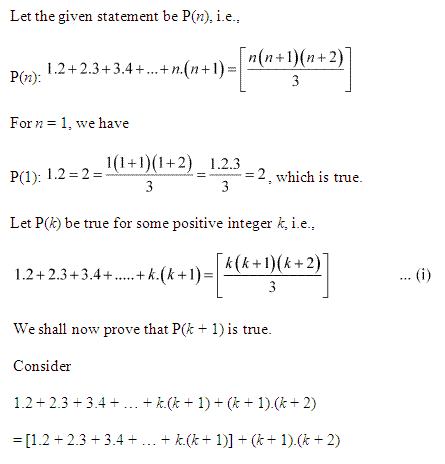

Question 7:
Ans :

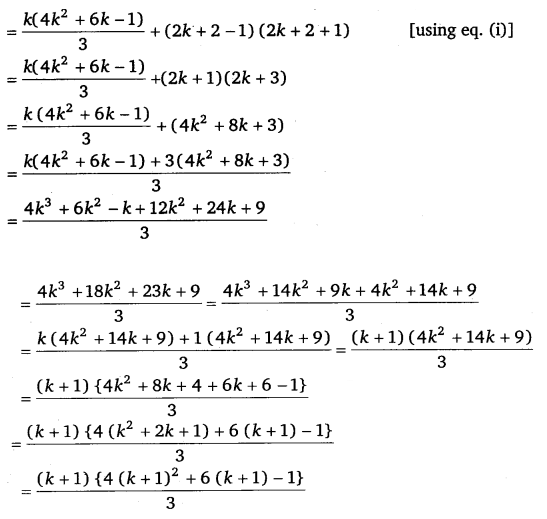
Thus, P(k + 1) is true whenever P(k) is true.
Hence, by the principle of mathematical induction, .statement P(n) is true for all natural numbers i.e., n.
Question 8:![]()
Ans :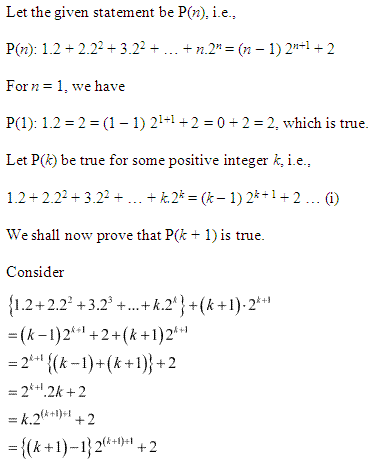

Question 9:
Ans :


Question 10:
Ans :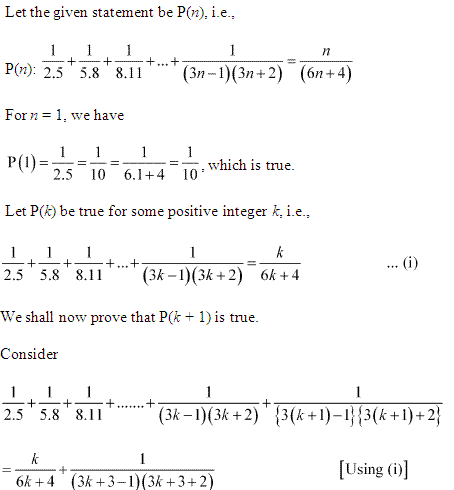
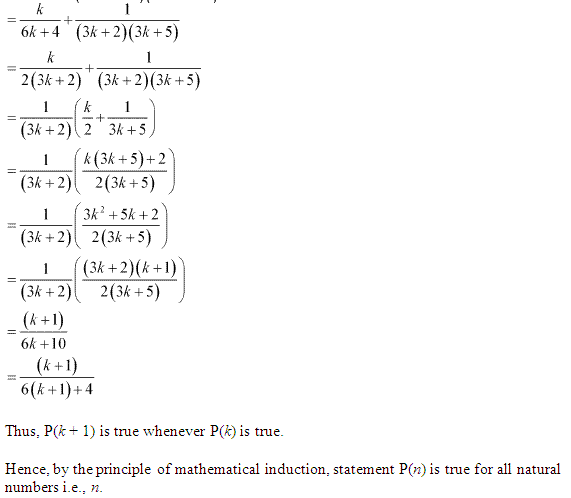
Question 11:
Ans :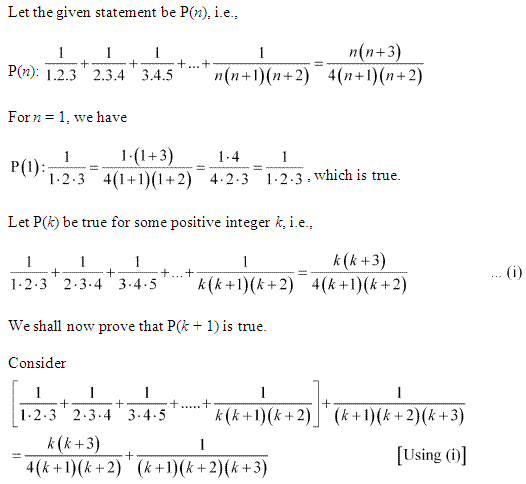
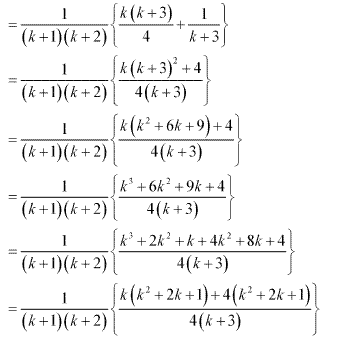
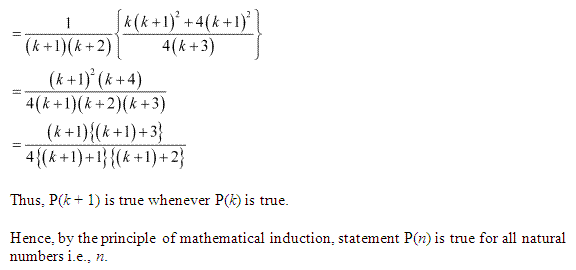
Question 12:
Ans :


Question 13:
Ans :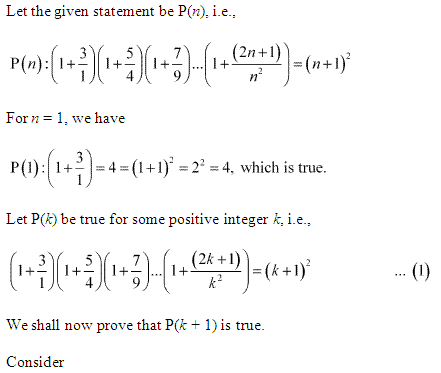
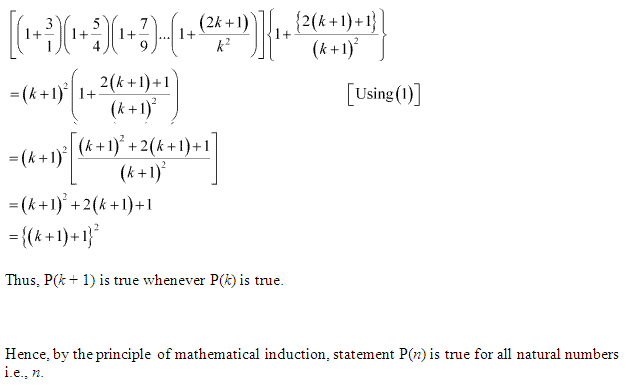
Question 14:
Ans :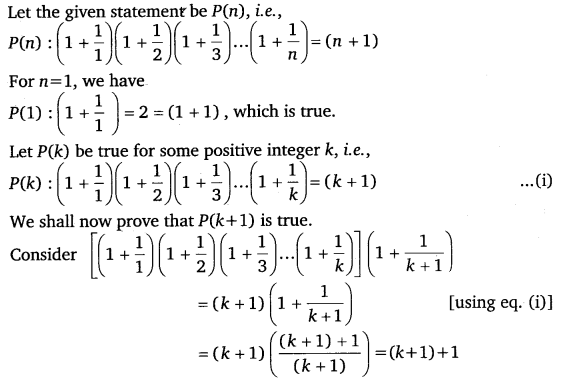
Thus, P(k + 1) is true whenever P(k) is true.
Hence, by the principle of mathematical induction, statement P(n) is true for all natural numbers i.e., n.
Question 15:

Ans :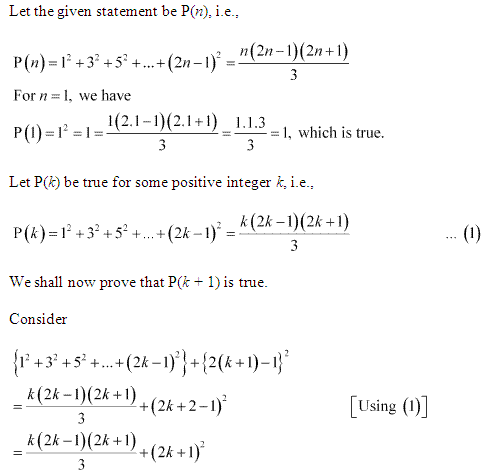
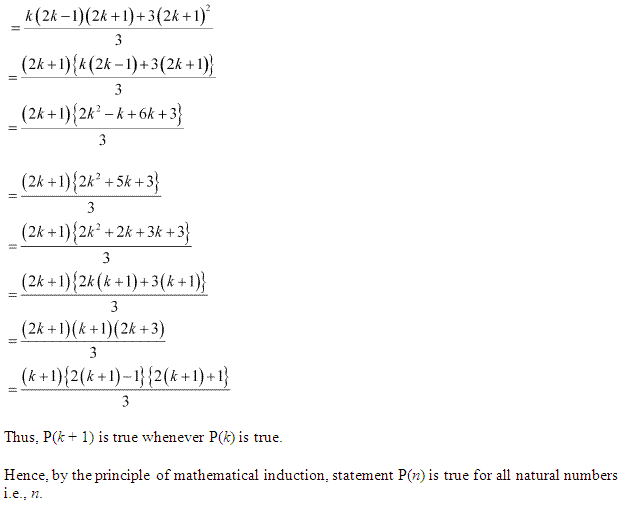
Question 16:
Ans :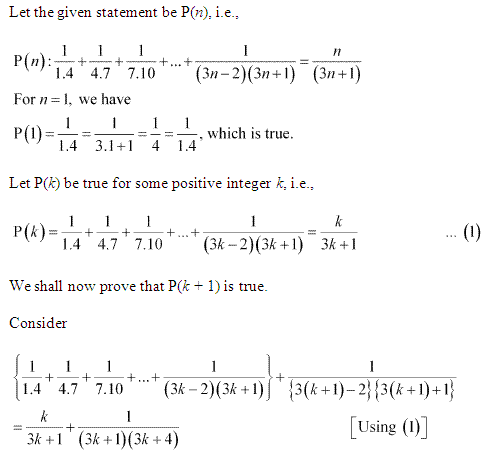
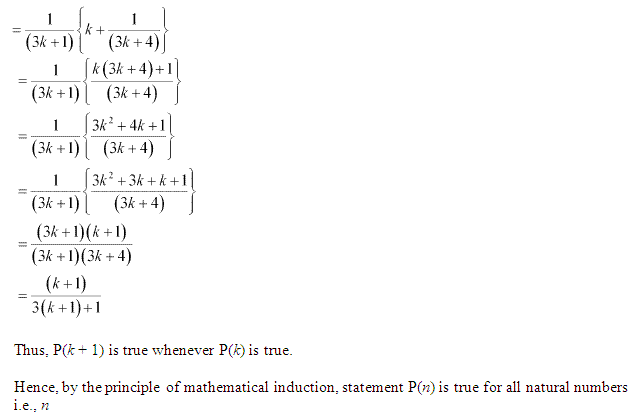
Question 17:
Ans :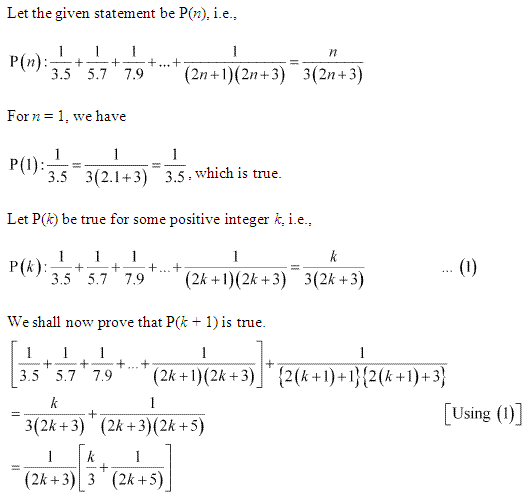
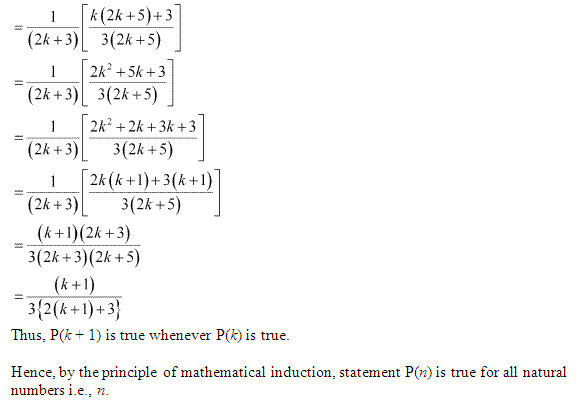
Question 18:
Ans :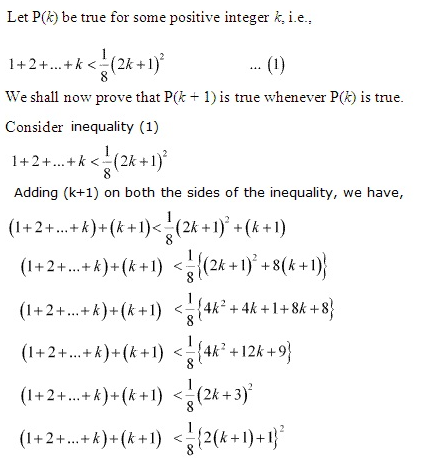

Question 19:![]()
Ans :
Let the given statement be P(n), i.e.,
P(n) : n (n + 1) (n + 5) which is a multiple of 3.
It can be noted that P(n) is true for n=l since 1 (1 + 1) (1 + 5) = 12, which is a multiple of 3.
Let P(k) be true for some positive integer k, i.e., k (k + 1) (k + 5) is a multiple of 3.
∴ k (k + 1) (k + 5) = 3m, where m ∈ N ……………….(i)
We shall now prove that P(k + 1) is true whenever P(k) is true.
Consider (k + 1) {(k +1 ) + 1} {(k + 1) + 5}
= (k + 1) (k + 2) {(k + 5) + 1}
= (k + 1) (k + 2) (k + 5) + (k + 1) (k + 2)
= {k (k + 1) (k + 5) + 2 (k + 1) (k + 5)} + (k +1) (k + 2)
= 3m + (k + 1) {2 (k + 5) + (k + 2)}
= 3m + (k + 1) {2k +10 + k + 2}
= 3m + (k + 1) (3k + 12)
= 3m + 3 (k + 1) (k + 4)
= 3 {m + (k + 1) (k + 4)}
= 3 × q, where, q = {m + (k +1) (k + 4)} is some natural number.
Therefore, (k +1) {(k +1) +1} {(k +1) + 5} is a multiple of 3.
Thus, P(k + 1) is trtie whenever P(k) is true.
Hence, by the principle of mathematical induction, statement P(n) is true for all natural numbers i.e., n.
Question 20:![]()
Ans :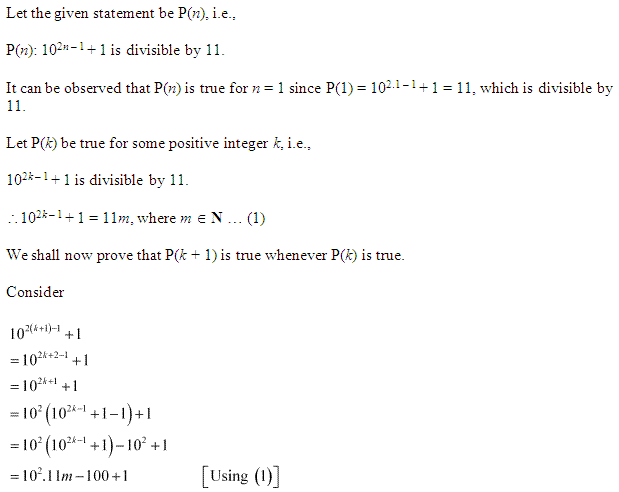

Question 21:![]()
Ans :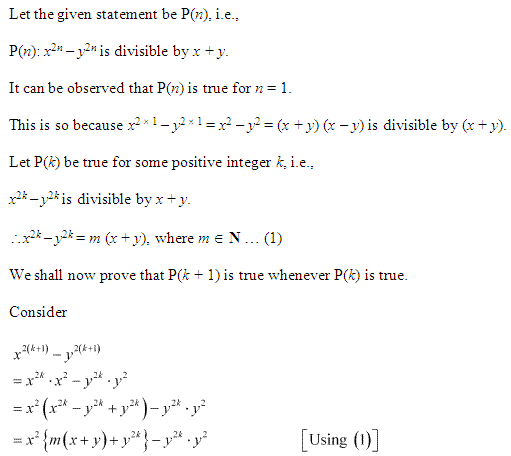
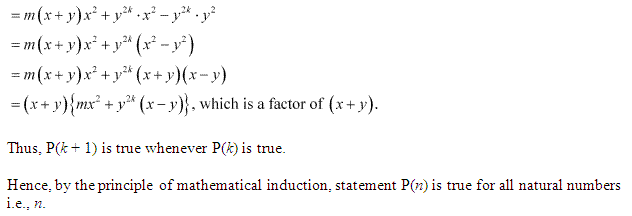
Question 22:![]()
Ans :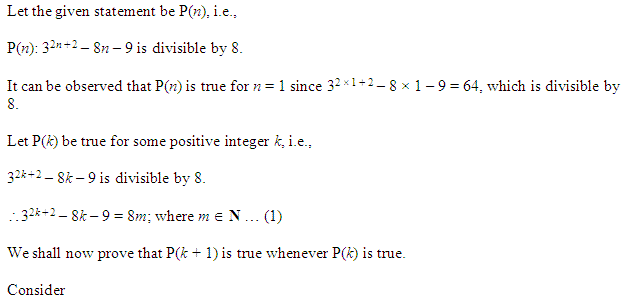
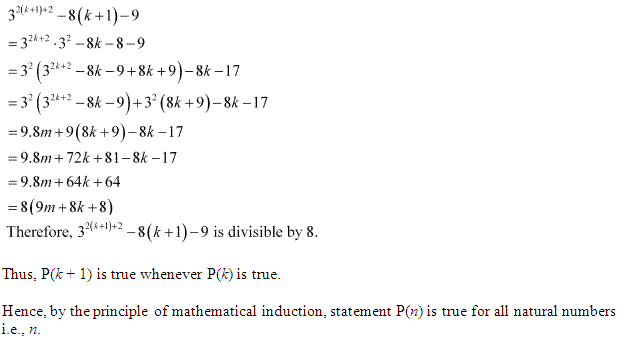
Question 23:![]()
Ans :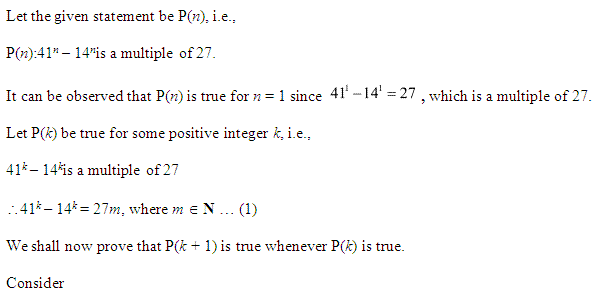
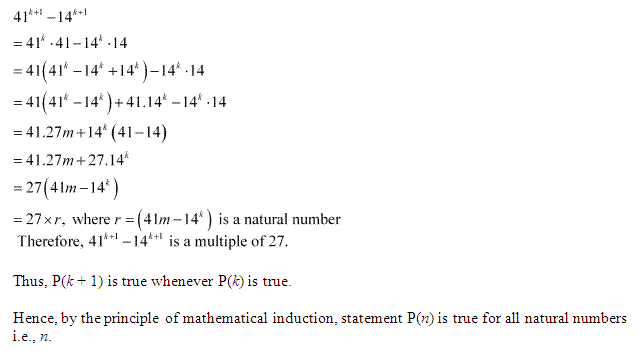
Question 24:
Ans :
